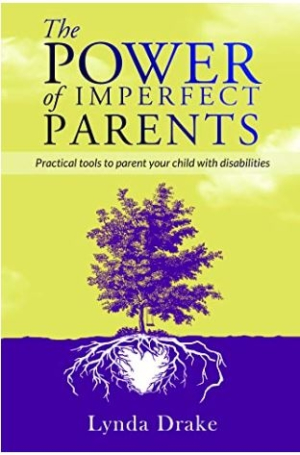The Power of Imperfect Parents
Practical Tools to Parent Your Child with Disabilities
The Power of Imperfect Parents is a thoughtful but insular guide that delivers general advice for the parents of special needs children.
Based in considerable personal experience, Lynda Drake’s parenting guide The Power of Imperfect Parents gives advice on raising children with special needs.
Drake raised three children with different needs, including mental disabilities, severe allergies, and behavioral disorders. In the process, she learned effective ways of parenting atypical children, handling various challenges as they arose. Walking through her triumphs and failures in the form of detailed anecdotes, she expresses feelings like regret over failing to acknowledge the issues that led to her daughter cutting herself and pride over helping her son learn to navigate disappointment.
Still, while it works to cover a wide range of topics, the book’s presentations are too inconsistent to be compelling. For example, while Drake does an able job of demonstrating her own challenges in raising children with specific disabilities and health issues, a late chapter that explains the disabilities that impact her children from outside of their perspectives is less convincing. Furthermore, the book is uneven in its descriptions of recommended sources and products. For example, it mentions the benefits of acupuncture in a brief paragraph, without information about the science or history of the practice. By contrast, it speaks about the benefits of EFT tapping at length, both in terms of the science of the practice and via a story that seeks to demonstrate its effectiveness.
Rough transitions and muddled distinctions between topics further hinder the book’s delivery. The chapter “Doctors and Other Professionals,” for example, jumps from a discussion of medical professionals and health care to one about school and educational professionals; the shift is jarring. In addition, some concepts are addressed on repeat, as with the topic of one’s relationships with doctors, which appears in several chapters without need. Grammatical errors are an additional impediment, as with missing spaces between words.
Though the book does include stories from other special needs parents in addition to Drake’s own accounts, most of these outside perspectives are contained in a single chapter toward the end of the book. In comparison to Drake’s stories, these anecdotes are too condensed to be fully instructive. The book is also short on expert commentary, such as insights from doctors, educators, and others with professional knowledge about special needs child care. As a result, its work is less comprehensive than it sets out to be.
The Power of Imperfect Parents is a thoughtful but insular parenting guide that draws on one person’s experiences with raising special needs children to deliver general advice.
Reviewed by
Gail Hoffer-Loibl
Disclosure: This article is not an endorsement, but a review. The publisher of this book provided free copies of the book and paid a small fee to have their book reviewed by a professional reviewer. Foreword Reviews and Clarion Reviews make no guarantee that the publisher will receive a positive review. Foreword Magazine, Inc. is disclosing this in accordance with the Federal Trade Commission’s 16 CFR, Part 255.

